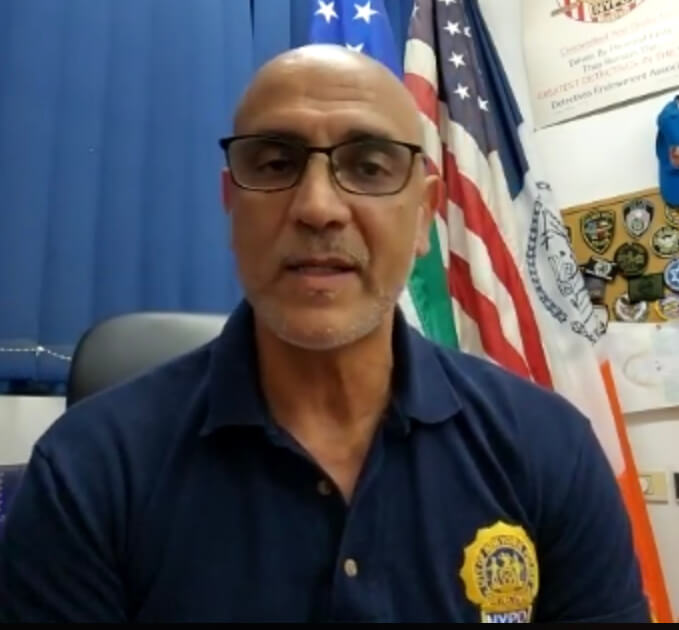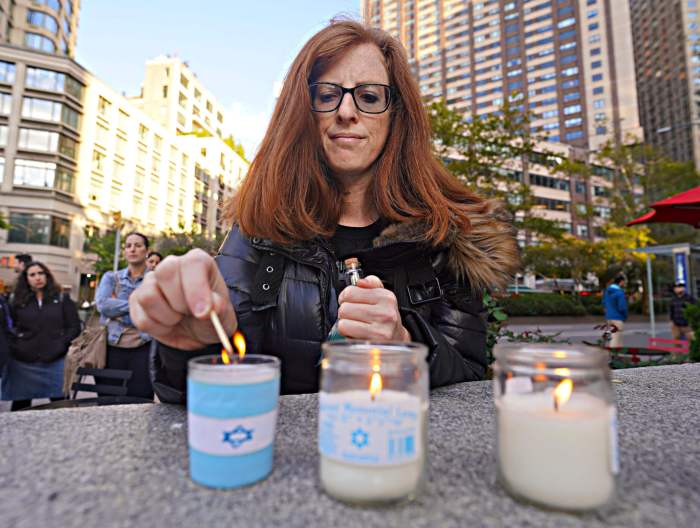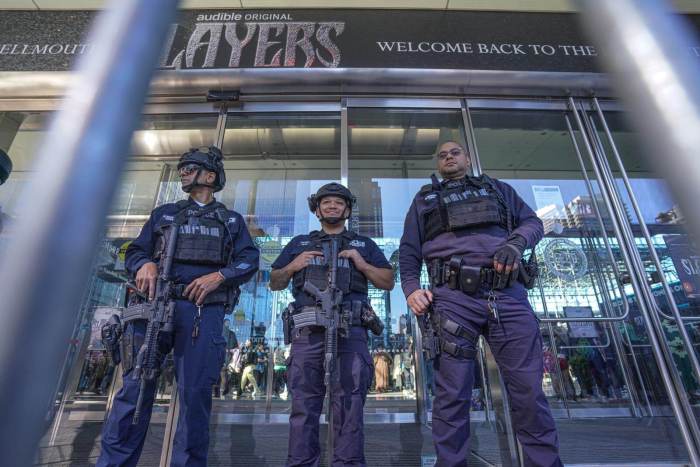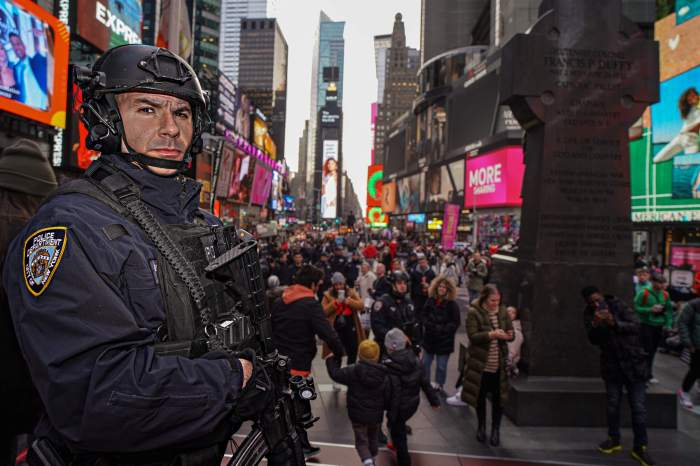When Hamas invaded Israel on Oct. 7, killing hundreds and taking hundreds more hostage, the lives of countless people in the area and around the world changed, including an NYPD cop stationed in the Middle East.
Charlie Benaim has been posted in Israel for the past 16 years where he has served as the NYPD liaison between the region and the Big Apple. For a decade and a half Benaim would monitor potential threats, crimes, and aid with security for visiting dignitaries. However, all that changed earlier this month when a terrorist group kicked off a harrowing war with unimaginable bloodshed.
“Since the war started in Israel, I shifted what I am concentrating on to counterterrorism missions. So on a day to day, I meet with the local law enforcement agencies, attend briefings and meetings, monitor open source intelligence and report back to New York the most up to date information,” Benaim explained. “That way our executives can have a good understanding of what’s going on in Israel and how things are happening here may impact our city.”
Most recently Benaim aided with the security surrounding Governor Kathy Hochul’s trip to Israel where they visited a site of an attack near the Gaza Strip.
Benaim is one of 14 NYPD liaisons situated all across the world. According to Deputy Commissioner of Intelligence and Counterterrorism Rebecca Weiner, the liaison program is all about protecting the city by placing cops in countries around the globe so they can be the first to report and establish protection protocols.
“Understanding what we call the New York question: What would this attack look like if it were to happen in New York? And how can we protect New York City better accordingly? What lessons can we learn from these jurisdictions around the world about how to better protect New York City,” Weiner asked. “So, when there is an ongoing issue, as this war obviously has become, our liaison officer is able to provide us real time updates about the situation on the ground, and how that might impact New York City so that we can stay one step ahead.”
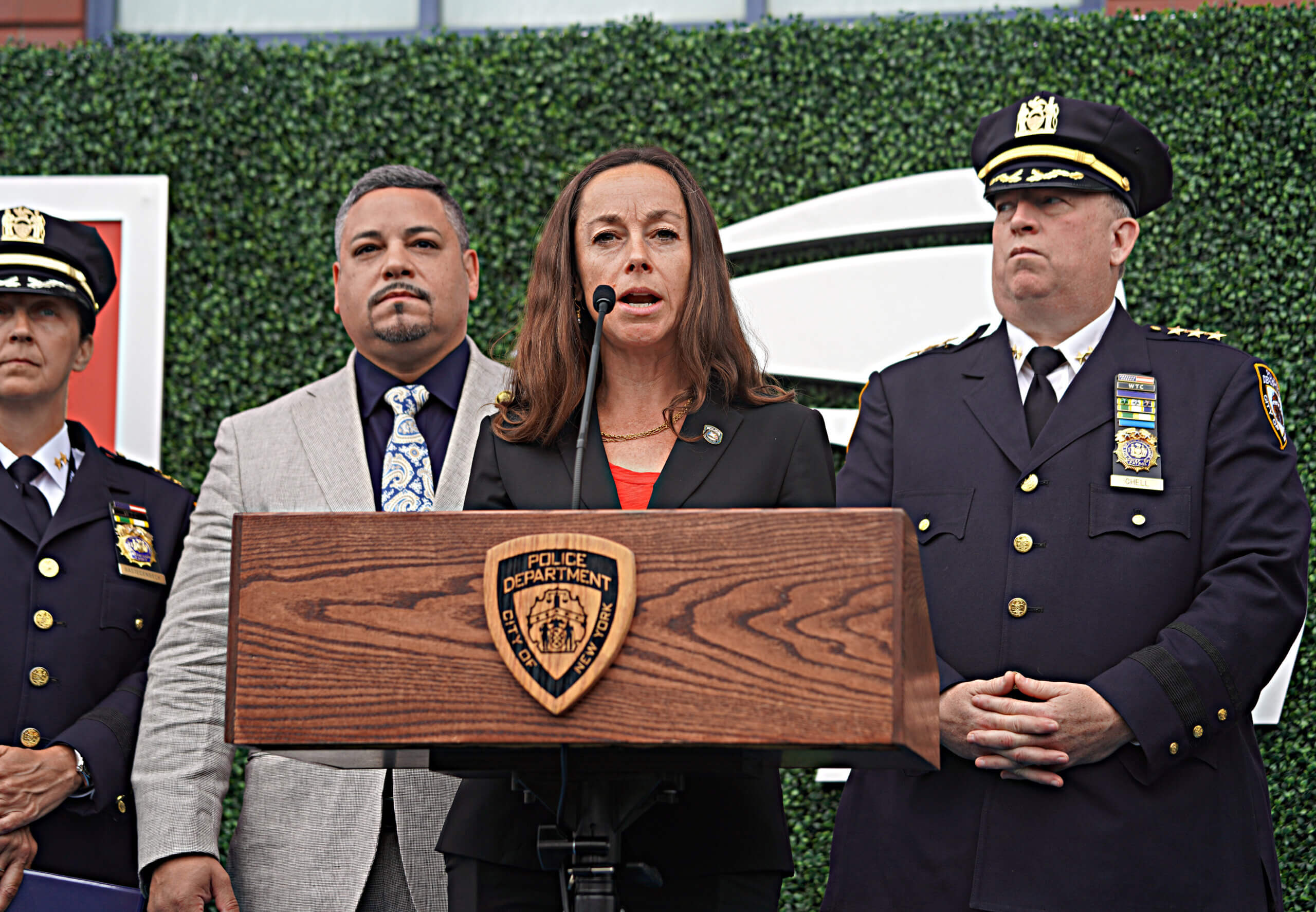
Although Benaim states that he currently resides in central Israel, risks remain. Benaim stated that in the event of a missile attack, he has about 90 seconds to make it to a secure location. Despite being dangerous, Benaim declared that over his tenure the NYPD has been able to establish relationships with law enforcement in the region, including the Israeli National Police.
Even though citizens of Israel have suffered trauma and heartache, according to Benaim the residents there soldier on, going about daily life as normal—or as close as they can be to normal.
“Israel wants to return to normal life as soon as possible no matter what the circumstances or situation the country is facing. So, even though there’s a war currently happening in Israel, life in central Israel is pretty much normal, meaning people go to work, people send their kids to school, whether some of the kids are learning via zoom. Some of the kids are actually going physically to school, as my daughters are at the moment,” Benaim said. “Shops are open, supermarkets are open pharmacies, banks, life is pretty much normal. I can say that most Israelis at the moment are kind of aware of their surroundings. They are constantly looking out for updates on their cell phones and they’re looking for sirens for missile attacks.”
Deputy Commissioner Rebecca Weiner likened this to the current state of New York City. Although the Big Apple is not facing a credible or specific threat of danger, the five boroughs remain on a heightened security alert. Still, like those in Israel, Weiner is asking New Yorkers to continue life as normal.
Read more: Tensions rise outside courthouse during Trump’s jury trial.



